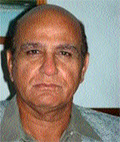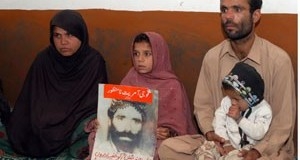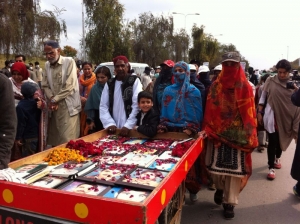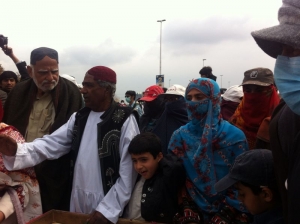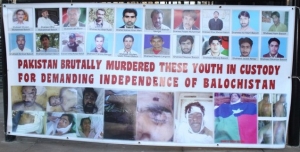I digress. Let us get back to Gwadar and international conspiracies. Gwadar was still on lease to Oman in March 1948 when Pakistan under Jinnah decided to usurp the Baloch freedom by its forced annexation in violation of all agreements. There was no conspiracy then except the Pakistani state’s conspiracy to grab Balochistan and deprive the Baloch of their rights and that conspiracy still flourishes. The real and underlying conspiracy is to obfuscate the real issue of state-sponsored terrorism against the Baloch since 1948 and against the Hazaras since 1999. The official narrative implies that everything that happens in Balochistan is due to the machinations of ‘foreign hands’. What they conveniently forget is that the Baloch have a history of resisting those who have tried to subjugate them. The allegations about foreign hands are to deflect criticism from their ‘strategic assets’ who, unable to do anything against the US in Afghanistan and the Indians in Kashmir, have unleashed their fury upon unarmed and innocent people here.
The carnage against the Hazaras, including the two this year, have been owned up to by the Lashkar-e-Jhangvi (LeJ). Raza Rabbani’s statement would imply that they are working for the enemies of China; this is as preposterous as it can get. The real intent of these allegations is to malign the Baloch nationalists so that the state and media can provide justifications to the people for the atrocities that are committed against the Baloch by the army and the Frontier Corps (FC). After Governor’s rule was imposed in January, operations against the Baloch intensified while a blind eye was turned towards the LeJ, which resulted in the carnage on February 16.
The media controls the discourse and ensures that the Baloch are painted in the worst colours in contrast to the treatment that the Tehreek-e-Taliban Pakistan (TTP) or other fundamentalists get. The TTP spokesperson Ehsanullah Ehsan is interviewed but the Baloch leaders are barred. The Supreme Court takes notice of Baloch views in the media as threatening the integrity of the state but the TTP is kosher. Little wonder Malcolm X said, “If you’re not careful, the newspapers will have you hating the people who are being oppressed, and loving the people who are doing the oppressing.” Here the oppressed end up being hated and the oppressors are admired.
People often ask the agonising question that the missing Dr Deen Mohammad Baloch’s daughter, Saman Baloch, asked of Mohammad Hanif: “If they want to hang my father, they should bring him to court, put him on trial and hang him in front of us. We’ll at least have the satisfaction of knowing that he is no more. But if they keep him alive for three years, four years; if they torture him every day and kill him and dump his body, what is the point of that?” The answer is they do this to intimidate physically and psychologically those who seek their rights and defy the might of the state.
It is noteworthy that thousands of Baloch have gone missing since 1974 and continue to go missing while more than 700 of them have had their tortured bodies dumped all over Balochistan. However, this brutality has not succeeded in intimidating the Baloch who continue to resist repression and exploitation because they realise that giving up their rights, land and resources would make their life meaningless and pointless. Therefore, they resist and struggle. For them the ultimate price is not their life but their land, history and culture. They know without these they would lose their moorings and bearings and would find themselves adrift without an identity and a reason to live; the struggle preserves and strengthens their identity. Their message to the state is that they will persevere and prevail. For them the axiomatic and poignant Pablo Neruda quotation: “You can cut all the flowers but you cannot keep the spring from coming,” has become the inspirational dictum. This is what they have come to believe and they will struggle whatever may be said or done.
The writer has an association with the Baloch rights movement going back to the early 1970s. He tweets at mmatalpur and can be contacted at mmatalpur@gmail.com

